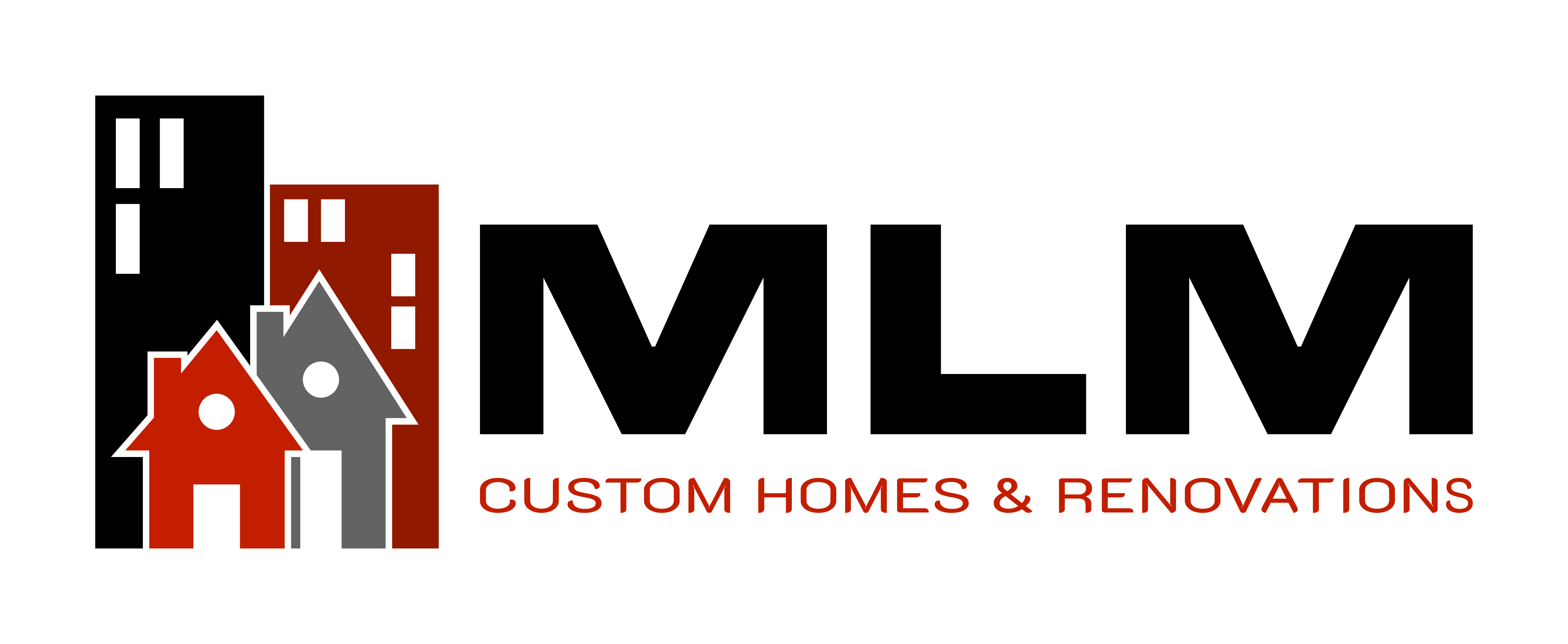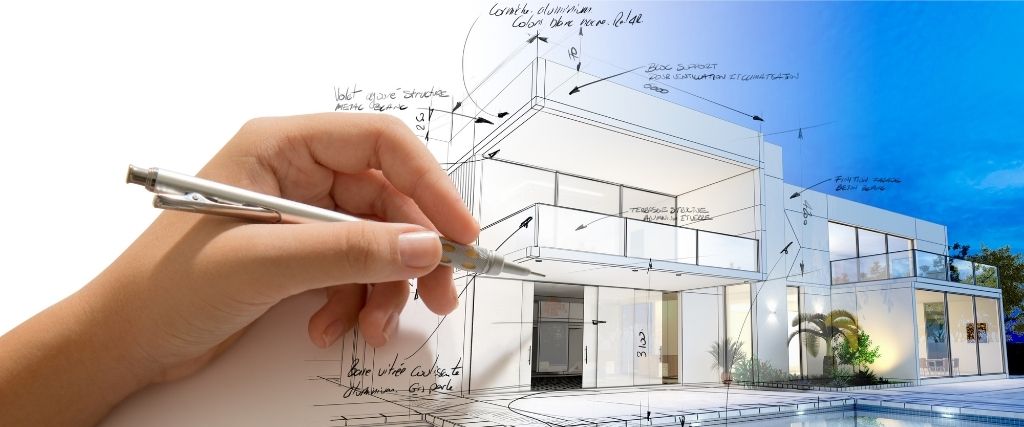Whether you’re starting from scratch or simply expanding, commercial construction loans can help you grow your business or build a space you can call your own. If you’re eager to make changes to your office, restaurant, retail, or other commercial space, we can help. This article covers what you need to know about commercial construction loans. Have more questions? Contact our team at MLM Incorporated to learn more about the loan process, and how we can help with your commercial construction needs.
What is a commercial construction loan?
Commercial construction loans allow companies to build, expand, or renovate a commercial building used for their business.
This type of build or renovation can easily cost hundreds of thousands, if not millions of dollars. Most companies simply don’t have the money to pay for this upfront, which is where commercial construction loans come in. By borrowing the money needed to pay for land, materials, and labor, you can make gradual payments towards your total cost.
We’ll discuss more of the details below, but to start, it’s important to understand that commercial construction loans are different from other types of construction loans. For example, during a home purchase, the borrower receives the full amount upfront and pays it back over a set period of time. Homeowners who are building new often follow this same format.
Commercial construction loans, on the other hand, are distributed in several different phases. Partial amounts are drawn as construction hits scheduled milestones. In most cases, interest is paid only on the current amount, rather than the total project cost.
Types of commercial construction loans
Before you apply for a commercial construction loan, start by researching the different types of loans available to you in your area and industry. These are some of the more popular variations.
1. Small Business Administration (SBA) CDC/504 Loan Program
504 Loans provide small businesses with long-term, fixed-rate financing to purchase existing buildings and/or land. They may also help fund the construction of new facilities or renovations.
These loans are typically structured with SBA providing 40% of the total project costs, a participating lender covering up to 50% of the total project costs, and the borrower contributing 10% of the project costs. In some cases, you may be required to contribute up to 20% of the total project costs.
To be eligible for a 504 Loan, your business must be for-profit and fall within a certain size. A business is generally eligible if it has an average net income of $5 million or less after federal income taxes for the preceding two years prior to applying. Total net worth can’t total more than $15 million.
2. Small Business Administrations (SBA) 7(a) Loan Program
This type of loan is the Small Business Administration’s primary program for providing financial assistance to small businesses.
There are several different types of SBA 7(a) loans, but the Standard 7(a) will provide up to $5 million with repayment terms ranging from five to 25 years. Lenders and borrowers can negotiate the interest rate. Certain qualified lenders often have the authority to determine eligibility without an SBA review.
For businesses working on smaller projects, the 7(a) small loan provides a maximum amount of $350,000.
3. Bank loans
Traditional bank loans for commercial construction vary greatly, but they are another option for business owners.
Your eligibility, interest rate, and down payment will depend on the bank you work with, as well as the repayment terms. In general, most banks require a down payment of 10-30% of the overall loan amount.
Factors to look for in traditional bank loans include:
- Interest-only during construction
- Terms up to 25 years
- Fixed and adjustable rates
From Bank of America to Wells Fargo, some of the biggest names in banking offer commercial construction loans for businesses.
4. Mezzanine loans
A mezzanine loan is unique because it is typically used for an expansion, rather than a business that is just getting started. This type of loan is secured with stock so that if the borrower defaults, the lender has the right to convert to an equity interest in the company.
One benefit of going this route is that providers of mezzanine loans typically become long-term investors in the company. This makes it easier to gain access to future financing when needed. On the other hand, owners do sacrifice some level of control.
5. Hard money loans
If you have poor credit, finding a loan can be difficult. For this reason, some businesses opt for hard money loans. This type of lender requires collateral in the form of the real estate at hand. If you default on your loan, the lender generally takes possession of the property.
While hard money loans provide quick access to short-term funding options, they typically involve higher interest charges, as well as fees. It’s important to do thorough research when it comes to these types of commercial construction loans in order to protect your business.
What are commercial construction loan rates?
There are several factors that determine commercial construction loan rates. Your company’s financial history and size are major determining factors, as well as the type of lender you work with. It’s important to shop around and negotiate the best possible loan contract for your business.
Generally speaking, commercial construction loan rates are anywhere between 4% and 12%. SBA and traditional bank loans are usually the lowest, with an average starting rate of just above 4% in 2019. These are only estimates. Your interest rates may be much higher, depending on your industry, location, and other factors.
What are commercial construction loan requirements?
Every lender will have a different set of requirements for eligibility, but personal credit scores are an important part of the process if you’re a smaller business. While a score in the high 600s is usually the minimum requirement, some lenders reject applicants with scores below the 700s.
In addition to your personal credit score, the financial health of your business will be crucial. The lender will look at your business credit score, along with a debt-to-income ratio. Simply put, this is the amount of money coming in every month compared to the amount of money going towards debt.
What is the commercial construction loan process?
While it may seem daunting, the commercial construction loan process is relatively straightforward. Here’s a look at what you can expect from start to finish.
Choose a lender and apply
Once you’ve decided on the type of loan you’d like (and the specific lender), it’s time to start your application.
You will need to provide extensive information about your personal and business finances, including, but not limited to, bank statements and tax returns.
You’ll also need to gather details about your construction project. This should include specs, initial designs, cost estimates, and more. A full business plan explaining your current operations and future projections is another common requirement.
Review, underwriting, and approval
After you submit your application, it will be under review for several weeks. During this time, you’ll likely need to provide additional information or documents.
The quicker you can get these items together, the better. This will move the process along so that underwriting can begin. Once your loan agreement is approved, it’s time for closing.
Closing
Congratulations! You’re on the brink of starting construction.
The closing process usually involves a thorough review of the loan agreement, as well as signing. Once this is complete, construction can get underway.
What we do at MLM Incorporated
At MLM Incorporated, we know how important it is to have a business space you’re proud of. We specialize in new commercial construction in Louisiana, as well as renovations and restorations, design-build, project management, and other construction services. From restaurants to retail spaces, our portfolio speaks for itself.
Our team can manage your construction process from start to finish, including but not limited to:
- Planning
- Design
- Permitting
- Inspections
- Build-out
As you’re applying for a commercial construction loan, we’ll help draft up any documents or plans you need to provide to your financial institution.
Our team has been delivering quality construction services across New Orleans and the surrounding areas since 2006. We will work tirelessly to ensure your vision comes to life.
Ready to start planning your commercial construction project? Set up a consultation with our team.

